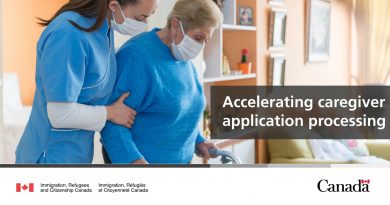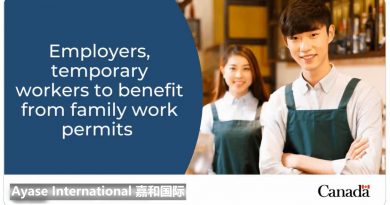Family Class: Assessing the Legality of a Marriage
A spouse is not a member of the family class if the spouse or sponsor was already married to another person at the time of the subsequent marriage [R117(9)(c)(i)]. This regulation prohibits a second (or third, etc.) wife from being recognized as a spouse within the family class and provides that only the first marriage may be recognized for immigration purposes.
For the first marriage to be recognized as legally valid under Canadian law, the couple must live together in a monogamous marriage in Canada. Common law imparts that a polygamous marriage can be converted into a monogamous marriage provided that the couple live together in a monogamous relationship from the time of arrival in Canada. This conversion can be done if the couple states their intention to convert their marriage to a monogamous one, followed by some factual evidence that they have complied – usually by divorcing the other spouses and/or by a remarriage in a form that is valid in Canada.
Note: The Department cannot require divorce(s) and remarriage. However, officers can ask for evidence that the parties have converted their marriage to a monogamous one and can explain what might constitute such evidence.
The decision to refuse an application must be based on the balance of all evidence, and not solely on the fact that the applicant did not obtain a divorce. The parties must understand that refusal to provide such evidence may result in the refusal of their application.
A polygamous second (or third, etc.) marriage cannot be converted to one of monogamy. If a husband wishes to sponsor a wife other than his first as his spouse, he must divorce his other wives and remarry the chosen wife in a form of marriage that is recognized as valid in Canada.
When a sponsor and applicant have been practising polygamy and there are children from several spouses, caution the sponsor and the spouse being sponsored that other spouses will not be eligible for immigration to Canada even if their respective children are sponsored. Officers must explain that separation of children from their mothers will likely be permanent, and counsel the sponsor and applicant to consider the consequences of that separation on the children. If the children nonetheless are sponsored, and if one of these children subsequently sponsors their respective mother, explain to the mother that she will have no spousal status and related legal protection in Canada and that she will not be eligible for support or other benefits that also flow from marriage under Canadian law.
The prohibition against polygamy in the Regulations, and the lack of recognition of all spouses except the first, cannot be avoided by processing a second spouse as a common-law partner. Legally, it is not possible to establish a common-law relationship that meets the definition of such in terms of conjugality, where one or both parties are still living in a pre-existing conjugal relationship. The notion of conjugality has within it the requirement of monogamy; therefore, it is only possible in law to establish a new common-law relationship after a person is either divorced or separated from the spouse or common-law partner and where they have convincingly formed the intention not to continue with that previous relationship.
An already existing marriage, uninterrupted by separation, divorce or death, is a barrier that cannot be overcome when assessing a second spouse as a common-law partner. However, where such a barrier is removed (i.e. a first wife is subsequently divorced or is deceased), a husband and second wife could choose either to remarry, or could potentially meet the definition of common-law partner (i.e. where a husband was separated from a first wife and lived with a second wife in a bona fide conjugal relationship for one year after the separation from a first wife). Because a subsequent marriage (where the first is continuing) is not valid in Canadian law, persons in such a scenario would be considered as single in law and they would have to remarry to be considered married under Canadian law.
Legality of foreign divorces
Previously married applicants must be legally divorced or their marriage must be legally annulled before they may remarry. In addition to proving that their subsequent marriage is legal, they must first prove that their divorce was legal. If the legality of a marriage or divorce is in doubt, consult the visa office responsible for the country where it took place, providing all available documents and information and an explanation of the concerns.
Officers may need to look closely at foreign divorces to determine if sponsors or applicants were, or are, legally free to marry again. The fact that a marriage licence was issued, or that a couple has remarried, is not proof that a divorce was legal where it occurred, or that it would be recognized as legally valid in Canada.
A foreign divorce is without effect if it was obtained by fraud or by denial of natural justice.
The federal Divorce Act of 1985 governs the recognition of foreign divorces. It specifically provides for the recognition of foreign divorces where the divorce was granted after February 13, 1986. These divorces are valid in Canada if either spouse was ordinarily resident in the foreign jurisdiction for one year immediately preceding the application for the divorce.





